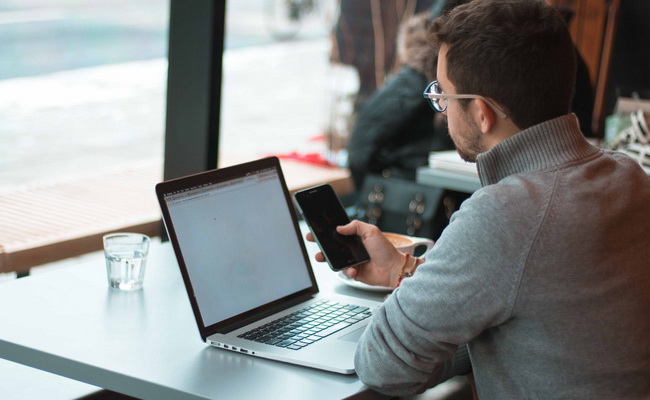Whether it’s for business or leisure, keeping your devices secure when you travel is important. Cybercriminals thrive off of travellers who are unaware of the dangers they face when using their devices, especially when they are abroad.
The travel industry is slowly but surely starting to recover from the Covid-19 lockdown. Flights are taking off and hotels are opening their doors again. It’s an exciting time for many people, however, you shouldn’t overlook your security and privacy.
Whether it’s for business or leisure, keeping your devices secure when you travel is important. Cybercriminals thrive off of travellers who are unaware of the dangers they face when using their devices, especially when they are abroad.
If you will be travelling in 2022, you must ensure that your devices have the necessary cybersecurity tools available. Read on to find out what risks you might be facing and how you can prevent becoming the victim of a cyberattack.
Why travelling puts your devices at risk
Elling can put your devices at serious risk. This is especially true if you’re travelling abroad and need to use a WiFi connection to get connected to the internet. Most people are unaware of these dangers until it’s too late.
The majority of airports, hotels, and restaurants use public WiFi hotspots. Oftentimes these are unsecured networks that you can connect to for free. Although it might not be the fastest connection, it’s a convenient way for people to quickly get connected to the internet and check up on their latest messages and social media news feeds.
The problem is that these unsecured networks present an opportunity for cybercriminals to take advantage of the devices that are connected to them. Hackers will not only be able to intercept the data that you send and receive on the network, but they will also be able to install malicious software on your device.
A hacker can commit their crimes by positioning themselves between your device and the network (not necessarily physically, but in terms of the network connection). For example, the cybercriminal’s device will relay the information between your device and the internet. This means that any data that your device sends to the internet will pass through the hacker’s device first. This is known as a “man in the middle attack”.
What data can be stolen from your devices?
The biggest risk to the attacks that take place on a public WiFi hotspot is that the cybercriminal will be able to see what you are doing on your device. This will give them the opportunity to ‘eavesdrop’ on your device.
Man-in-the-middle attacks will allow cybercriminals to steal important data from your devices such as your personal information and even login credentials. Not only is this a huge invasion of your privacy, but it will also allow cybercriminals to commit crimes against you. This is the last thing you want, especially if you’re in a foreign country.
Hackers can use your personal information to commit crimes such as identity theft and fraud. Cybercriminals could also sell your information on the dark web to other, more dangerous criminals where they can make huge amounts of money.
One of the more dangerous risks that you face when you use an unsecured network is having malicious software, also known as malware, installed on your device. Malware is extremely dangerous and can range from viruses to spyware and even ransomware.
How to protect your devices
If you’re going to be travelling in the near future it is always best to be prepared beforehand rather than putting your devices at risk of being breached by a skilled hacker while you’re using an unsecured network. There are two cybersecurity tools that are absolutely essential for you to use when travelling.
The first, and arguably the most important tool you need is a premium VPN or virtual private network. A VPN will encrypt your internet connection which will mask your location and what you do on your device even if you’re connected to an unsecured network.
A VPN is the ultimate tool for online privacy and security, and it can encrypt your connection by allowing you to connect to one of several global servers. No one, not even your internet service provider, will be able to keep track of your internet traffic or browsing history while you’re using a VPN.
You must ensure that you use a premium VPN because free VPNs have several drawbacks that can have an impact on your device’s secure connection. For example, free VPNs usually have slower connections, daily bandwidth limits, and a limited selection of global servers to choose from.
The other cybersecurity tool that you must use is premium antivirus software. Antivirus software will constantly scan your device for any malicious software. If any malware has been detected, the antivirus can take action and remove it from your device.
Before you travel you must remember to update your antivirus software. Software updates are regularly sent out by developers to ensure that any flaws that have been discovered in the software are fixed. Updates also add extra layers of defence against new tactics that are used by cybercriminals to bypass the antivirus software.
Photo by Joseph Frank on Unsplash








































































































































































